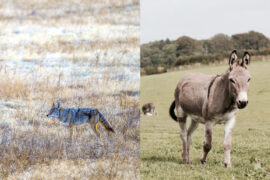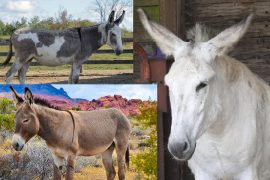Teeth have an integral role in the digestion process. If the food is not chewed properly in the mouth, the remaining steps will not go smoothly and in time. And when it comes to donkeys and equines, dental care is a necessity that must be given much attention. So, do donkeys have to have their teeth floated? The answer is yes. Floating must be done to the donkey’s teeth to prevent the edges of their teeth from growing sharp and causing discomfort to them. Read on and learn more about dental care for donkeys.
Why Do Donkeys Have to Have Their Teeth Floated?
Teeth floating is the process of filing away the sharp edges of teeth in your donkey’s mouth to enable them to chew and digest food appropriately. Since donkeys’ teeth have long-running roots, they never stop growing. This continuous growth results in their teeth getting longer throughout their lifetime. As a result, regular filing is necessary to make chewing comfortable for them.
The lack of teeth filing can cause serious issues to the donkey’s mouth and gums. If the sharp edges are allowed to grow without check, they could cause injuries to the donkey’s gums and cheeks. Donkeys chewing their food in a circular motion, is also a factor adding to the cause of sharp edges. And when these happen, the donkey might lose its appetite and have adverse effects on its health as a result of loss of interest in food.
How Often Do Donkeys Have to Have Their Teeth Floated?
It is always best to avoid a situation of sharp tooth edges than treating it once the damage is done. So, it is better to get your donkey’s teeth floated whenever it is necessary and include it with regular dental checkups. You can schedule the appointments with your donkey’s veterinarian or an equine dental technician for the same.
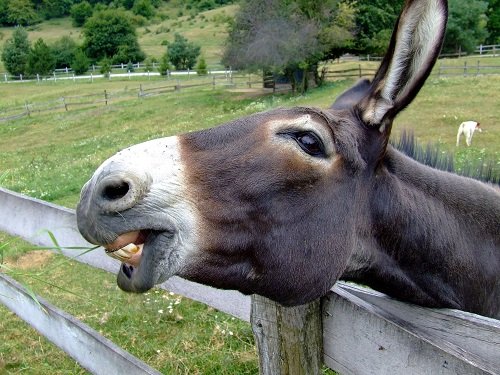
Also, the scale at which the tooth grows will be different from donkey to donkey, and changes could appear as they age. And according to the age of your donkey, you might have to have their teeth floated once in six months or, for some, once in a year. For a young adult donkey having their teeth checked and floated once a year or more is recommended, while for younger donkeys, it is good to have their teeth checked at least twice a year. When it comes to older donkeys, they might have more issues regarding their teeth because of their teeth. Hence, dental checkups are advised to be scheduled every three months for them to have healthy teeth and gums.
How to Know If Your Donkey Has Dental Issues?
If your donkey’s teeth get sharp edges, it will inevitably affect its appetite and further health. Donkeys being the strong ones among equines, they might not express their discomfort right from the onset but rather wait till the pain gets insufferable. They will try to reach out to you by giving certain signs to let you know they are in pain.
If you find your donkey dropping food while chewing, and it continues to do so you can suspect a need for teeth floating or some dental issues. Dropping food while eating is a sign that indicates that the donkey is having a hard time chewing and that it is aching in its mouth. Donkeys who usually love to keep on eating when showing such a sign should be taken seriously.
Similarly, if you find your donkey drooling excessively, this is also a sign of pain and discomfort. Immediate checkup, and often teeth floating would be required, since excessive drooling is associated with trouble chewing, which must have arisen due to sharp edges.
Loss of appetite and following weight loss are indicators of problems with teeth and gums. So, if you find a donkey refusing to eat and losing weight rapidly, they require attention from the veterinarian to check for any problems in the mouth. Only excruciating pain can stop donkeys from eating since they are big-time foodies.
Quidding is a situation that arises out of sheer necessity, where the donkey puts the food between its cheeks and gums to prevent chewing. This is also a scenario, that is a result of unbearable pain while chewing food.
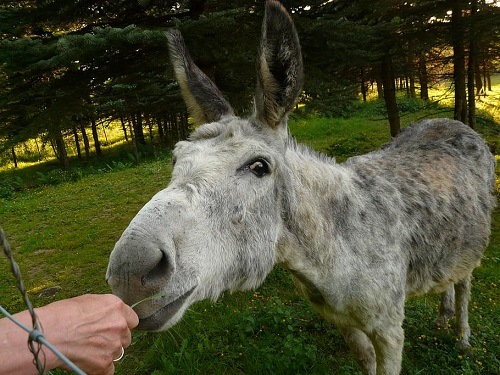
Above all these, if you keep track of the growth of your donkeys’ teeth by physically examining the obvious changes, a lot of these situations could be prevented. By doing that, you will be able to identify whether the teeth are growing sharper and take the necessary measures to prevent things from going south. After all, prevention is better than cure, is it not?
Why Is Dental Care Necessary for Donkeys?
Dental problems have the second position when it comes to medical conditions regarding donkeys, with hoof problems taking the first place. Since teeth and mouth have important roles in determining the overall health and well-being of your donkey, it is important that you give it much-needed attention. Donkeys are known for being stoic. Hence, it will be difficult to identify whether they are facing any trouble or discomfort. And at times, you cannot even find a sign or symptom. So, monitoring the donkey’s behavior and temperaments is also necessary. You can check out for changes in their appetite and digestion, and immediately tend to any facial swelling or foul odor from their mouth since they indicate tooth problems.
Conclusion
A happy donkey is a healthy donkey, and food is part of the donkey’s happiness. So, try to ensure that your donkey is having a good time enjoying its food without any discomfort or pain. Teeth floating is an integral part of ensuring this, and now since you are well-informed about how often donkeys have to have their teeth floated, you can start taking the necessary measures right away.
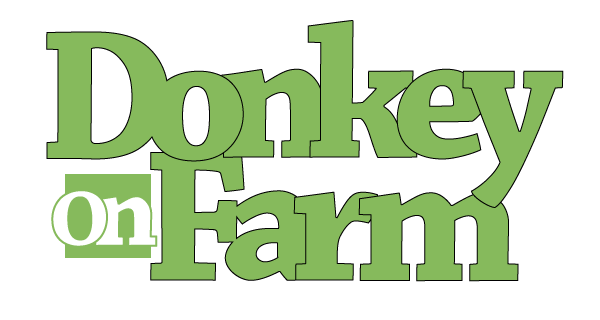
![Do Donkeys Have to Have Their Teeth Floated? [Is it Important?] do donkeys have to have their teeth floated](https://donkeyonfarm.com/wp-content/uploads/2023/07/happy-donkeys-smiles-cute-preview_11zon.jpg)

![How Much Are Miniature Donkeys [Plus Where to Buy Them?] how much are miniature donkeys](https://donkeyonfarm.com/wp-content/uploads/2023/09/Perry-miniature-donkey-in-Palo-Alto-CA-2016_11zon-270x180.jpg)
![Do Donkeys Laugh? [Plus Why Do They Do It?] do-donkeys-laugh](https://donkeyonfarm.com/wp-content/uploads/2022/08/Why-do-donkeys-laugh-270x180.jpg)
